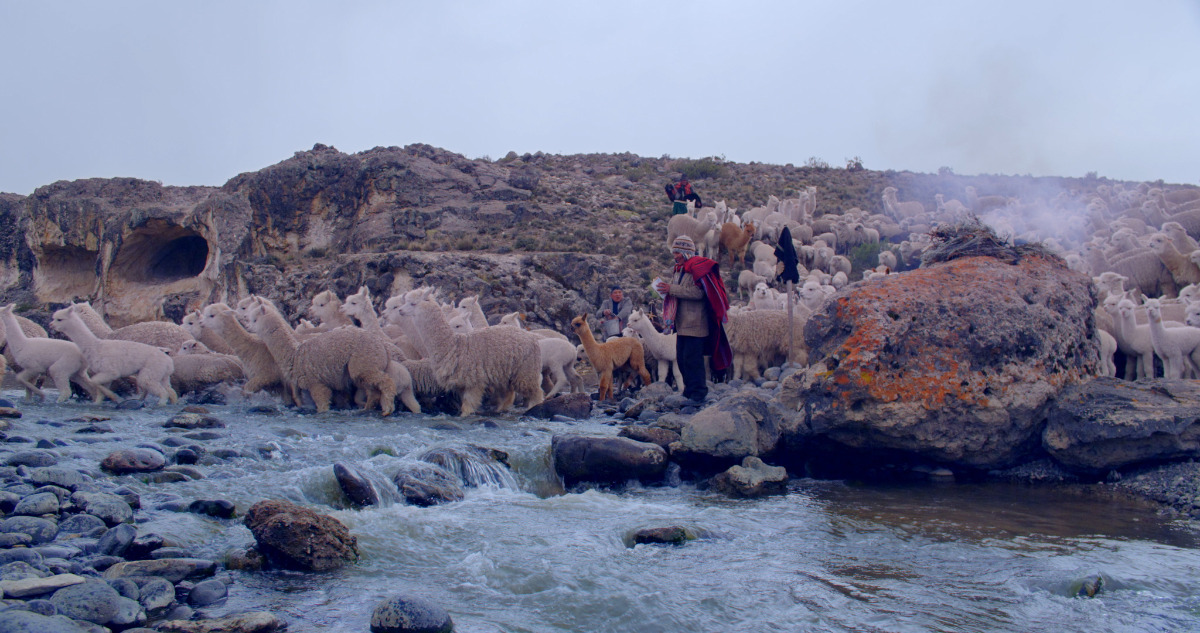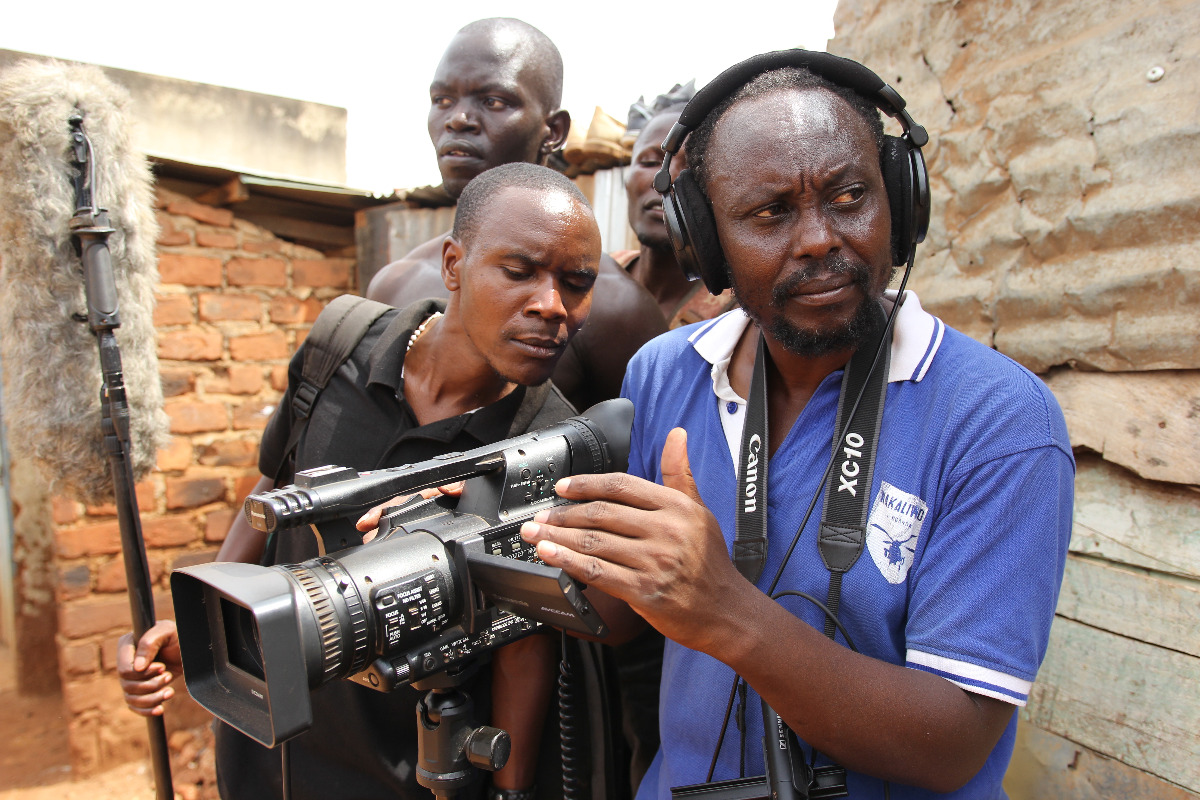Pakucha
(Peru, 81 min.)
Dir. Tito Catacora
Programme: World Showcase
In the culture of the Aymara, a large Indigenous group that resides throughout the Andes in South America, the alpaca is the holiest of holy creatures. As an amateur alpaca enthusiast, myself (I regularly spend hours online looking at photos and videos of them), this is completely understandable. Their outrageously cute exteriors, sly little smiles, and generally lovable nature has always seemed to signal a higher power. The Peruvian Aymara family in Tito Catacora’s Pakucha is well aware of this, and the film observes them as they pay tribute to this sacred creature.
The pakucha is the alpaca’s soul, which resides eternally in the surrounding Andean mountains. For the film’s alpaquera family, then, the large group of alpacas (one of them states that there are around 220) under their care aren’t just animals to be herded–they act as a gateway to another realm of existence altogether. Through a series of gorgeously expansive long takes, we watch as the family henceforth performs uywa ch’uwa, an extended ancient ritual devoted to the pakucha.
Catacora doesn’t capture this important transcendent event with a funereal tone, though. Instead, his patently empirical film takes on an air of absurdist whimsy, while being quick to ground the ethereal nature of the ceremony in the humour that naturally springs out of the family’s quotidian behaviour amongst themselves and their alpacas. Early scenes almost feel like slapstick comedy, like when they have to pick out an alpaca to shear for the ritual, circling the herd and then struggling to hold one as it flails around. “Stop drinking the liquor,” one family member chastises another when they keep taking breaks to grab swigs from a nearby bottle.
As the ritual continues to progress, Pakucha’s subtly droll atmosphere only increases, reaching its apex in an episode where two alpacas need to be “married. “The family corrals two prime candidates, holds them side by side, adorns them in the proper regalia and takes celebratory photos, all while the newly married couple desperately tries to break free from the charade. The rest of the alpaca herd looks on aloofly through all of the film’s events, a representation of nature’s more-or-less indifferent view towards the actions of our human species, while the children adorably dance around them and playfully smack their behinds.
Despite the undeniable humour, Pakucha doesn’t mock the events unfolding before his camera. Catacora displays a deep understanding of Aymaran culture, particularly in the more disquieting moments of the ritual. There is one instance of potentially upsetting animal violence, during the part of uywa ch’uwa where an alpaca must be sacrificed to appease the higher powers. Yet the act is performed in as respectful a manner as possible, with Catacora filming it from a distanced and obstructed vantage point to shield any unnecessarily exploitative gore. The family then continues to hold the fallen alpaca in high regard by consuming its meat afterwards, treating it tenderly in the preparation process. One of the men is jazzed about how his cooking prowess will enhance the ritual, slapping barbeque sauce on the meat before entombing it in a makeshift oven in order to make the tastiest meal possible.
No matter what modernized urban society may think of these practices, it’s clear by the end that uywa ch’uwa is really in service of celebrating new life, with the ritual capped off by the birth of a baby alpaca that will only add to the pakucha’s overall life force. And what a majestic life force it truly is. Pakucha offers scene after scene of oodles of alpacas flocking hypnotically from one area to another, allowing plenty of time to take in the soothing visual pleasure of these fluffy beings. Forget counting sheep at night. We should be forever counting alpacas to attain a restful, dreamy, and perhaps more spiritually attuned state of mind.
Pakucha screened at Hot Docs 2022.











